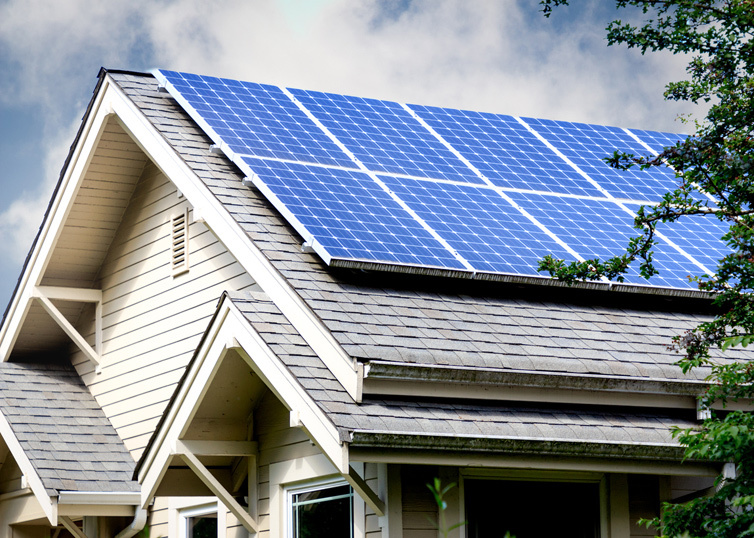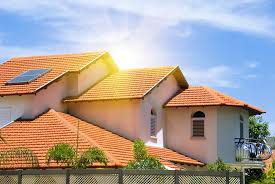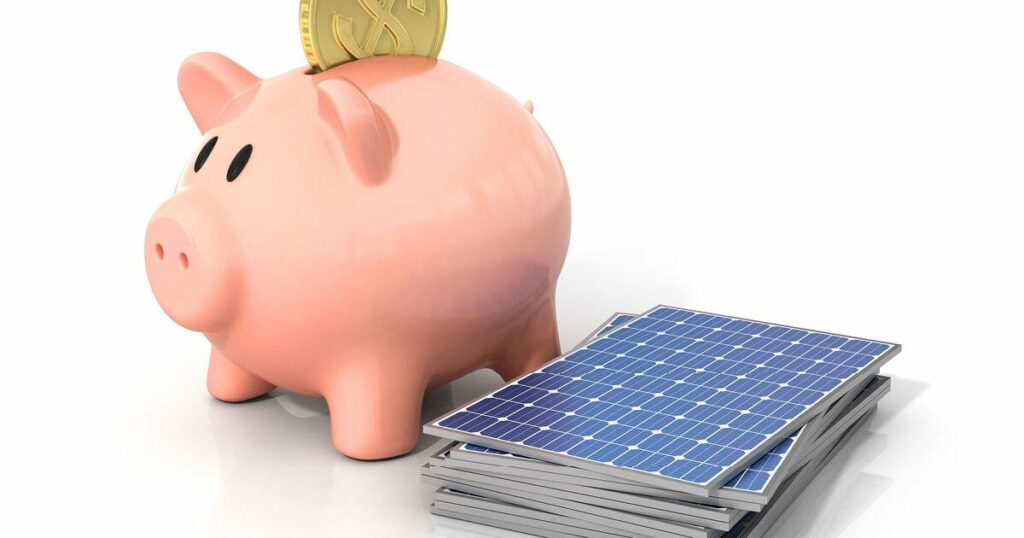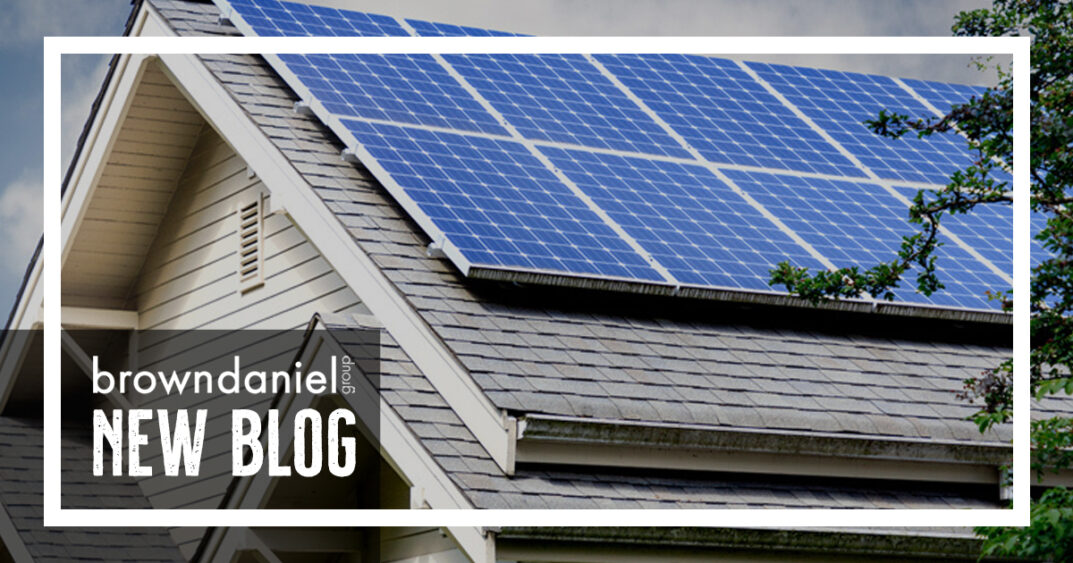
More and more people are becoming interested in solar energy these days, and many homeowners have either already installed such a system at their homes, or are beginning to wonder if it would be a good idea to make this investment. Solar panels can help you save money when it comes to the rising cost of electricity, though many people who purchase them are also interested in benefiting the environment through less reliance on traditional fossil fuels. When you make the move to solar energy, you are effectively installing a miniature power plant on top of your home, decreasing your reliance on the power plants near your home. Many people consider this a necessary step toward a greener, more environmentally conscious future.
But how do you know if solar panels make sense for your home? You might be wondering if they would really decrease your electric bill, or if they would be effective enough to lessen your reliance on traditional power sources. Read on for some important things to consider.
Review Your Electric Bill First
You’re probably aware that the price one must pay for electricity varies greatly across the country, but it can also vary greatly from county to county in north Georgia, depending on which utility provides electricity to your home. For some people, installing solar panels will not only reduce their electric bill, but could even eliminate it. The higher your bill, the more likely you will benefit from switching to solar, so your first step in making a decision about this addition to your home should be to evaluate your energy costs. Keep in mind that even in one location with one utility provider, rates can change throughout the year, so look at the amount you spend annually, not just at the current month.
Next Check Out Your Sun Exposure

More sun reaching your panels means more energy will be produced, which can lead to much greater savings with solar. Certain states, like Arizona and California, average more sunlight hours per day than other parts of the country, which is why solar has taken off so well in those areas. Here in metro Atlanta, we know about how many hours of daylight to expect from day to day throughout the year. You also need to consider your home’s orientation toward the sun, and even the type of roof your home has.
Luckily you can easily estimate the expected efficiency of solar panels in your area by using the Solar-Estimate calculator. On this website you can enter your address and the average cost of your monthly energy bill to receive detailed information about how many solar panels will be needed for your home, the cost of installation, and the savings you will receive.
How Much Can You Expect to Pay?

The average cost for a solar panel system including installation runs between $15,000 and $25,000, but a variety of factors can raise or lower this amount, including where you live, available rebates and the size of your home. When you are shopping for solar panels, approach the situation in the same way you would any big ticket purchase. Do your research and get multiple quotes from installers in your area. Be sure to read customer reviews online and check the Better Business Bureau website before you make a final decision on who to give your business to. And keep in mind that much like with other purchases, the cheapest option is not always the best. Your savings will likely be more lucrative if you invest in more expensive, higher quality equipment. Luckily, solar panel systems do not require much maintenance, and they are designed to last for at least 20 years, reliably providing the same amount of energy throughout the lifetime.
Look for Rebates and Incentives

There are significant incentives available to homeowners from the government for installing solar panels as an alternate energy source. For example, a residential federal tax credit allows taxpayers to claim 22% of installation costs for systems placed in service by December 31, 2021. This federal tax benefit is nonrefundable, which means you can’t get the savings in the form of a refund. Instead, you can reduce, and depending on the amount you owe, possibly eliminate the amount you must pay on your taxes. Additional credits vary by location, and will come in the form of cash back, property tax exemption, and waived fees. In some states, homeowners with solar panels can sell excess power to their local utility companies, which means this is an advantage that could eventually be available in Georgia. Because of the popularity of residential solar energy, some places are phasing out these incentives, so it could be beneficial for you to go ahead and make the move toward installing panels if you want to take advantage of incentives.
Rent, Finance or Lease
Whether you choose to buy or lease your solar panels will have a major impact on your system’s long-term value. You will save the most if you purchase a system and pay in full with cash. If you are not prepared to spend that much at once, you can also take advantage of a $0-down solar loan, which will still allow you to save tens of thousands. Another option available to buyers are solar leases and power purchase agreements (PPAs). These leases require no money down and promise a maintenance-free option, but they come with a trade-off: your total savings will typically be just 10 to 30 percent of your utility electricity bill.
How is the System Installed

During installation of a solar panel system, workers will drill holes in your roof to secure the racking which will hold your panels. These holes are for lag bolts, which secure your panels to your roof, and are designed to withstand extreme weather. These holes and bolts are necessary for almost every solar installation, and their size and depth will vary based on what material your roof is made of, such as asphalt, wood, etc.
Holes in your roof may sound understandably scary to you, but there are several safety measures used by solar installers to make sure your roof remains structurally sound with no leaks. To prevent water from getting through the new hole, the bolt fixture will be surrounded by flashing, which is a metal or plastic shield that fits under existing roof tiles. This flashing is then further sealed with tar or similar material. Lastly, the hole where the lag bolt is also filled with a sealant to protect against water seepage in your roof. In addition to the holes, many home owners worry about the effect the weight of the solar panels may have on their roofs. In almost every case, the weight of solar panels will not compromise the structural integrity of your roof, which is designed to hold much more weight than that of 20-30 solar panels.
Alternatives to Traditional Panel Installation

Particularly if you are worried about the holes needed to install solar panels on your roof, you may want to consider some of the different, but less common ways to benefit from rooftop solar energy. One popular option is to install solar roof tiles or solar shingles. These items integrate the electricity-generating capacity of photovoltaics right into your roof shingles and eliminate the need for mounting traditional panels. This option has many aesthetic benefits, but costs are still high for this new technology, and many experts feel this type of system isn’t as efficient as traditional panels. Also, if you happen to have a flat roof, you won’t need to put holes in it to install solar. Installations on flat roofs commonly use ballast mounting systems. With this type of system, the mounts are weighted down sufficiently to ensure the system remains secured to the roof. Another option to avoid solar on your roof entirely is to install a ground mount, or join a community solar plan and receive solar energy from an offsite location.
Reasons to Skip Solar
There are numerous reasons to consider installing solar panels on your home, but there are also a few reasons why you may want to resist the urge the urge to take part in this alternative energy source.
- Roofs That Need to be Replaced – If you will need to replace your roof within the next few years, solar panel installation is not for you just yet. In order to replace your roof, the entire system would need to be removed and reinstalled, a rather costly undertaking.
- Roofs That are too Shaded – Solar panels need enough access to the sun in order to work correctly. If large trees or neighboring houses leave your home in the shade for most of the day, you likely will not see enough of a return on your investment if you install a solar system.
- You Plan to Sell Your Home Soon – If you plan to move from your home in the next few years, you will not see enough savings from your solar installation to justify the cost.
- Your Utility Costs are Already Low – If you are lucky enough to pay comparatively little for your electricity, solar panels will not help you out very much.
- You Lack Sufficient Room for Enough Panels – If you don’t have enough room on your for the number of panels needed to provide the electricity to sufficiently lower your bill you may want to skip the idea.

